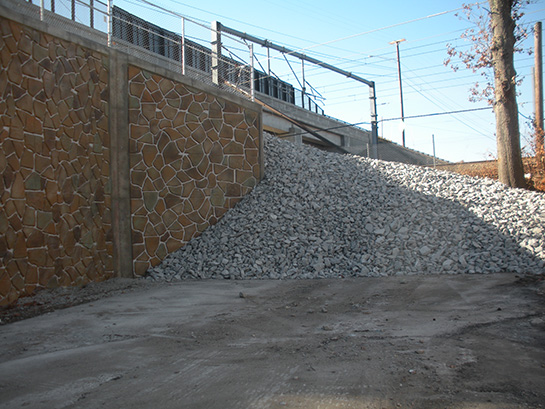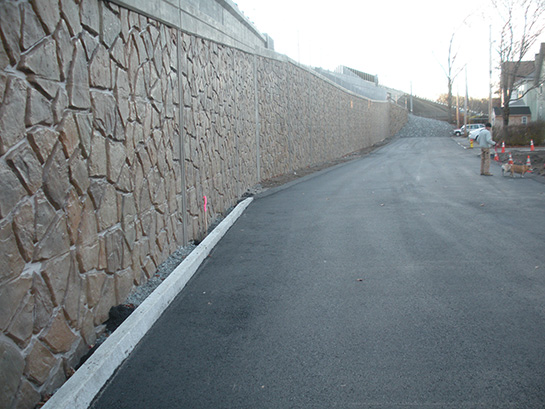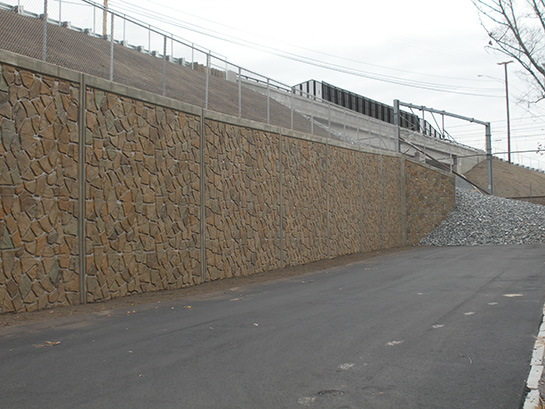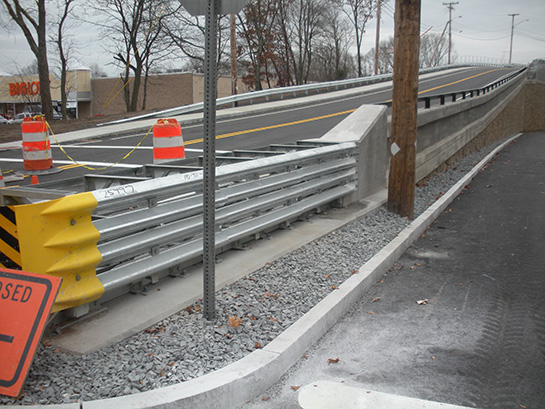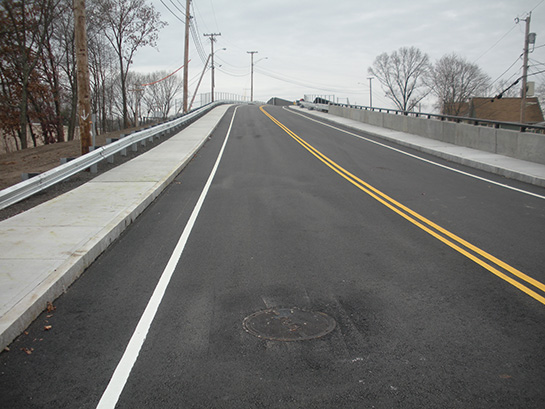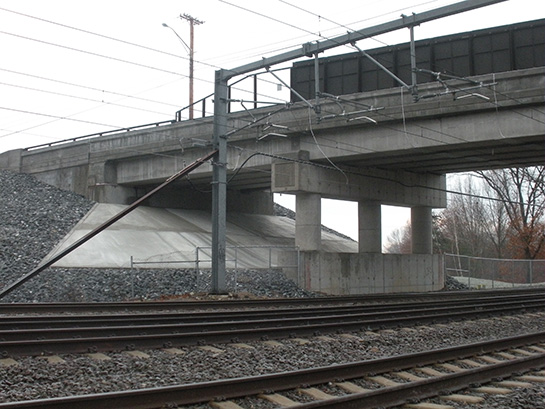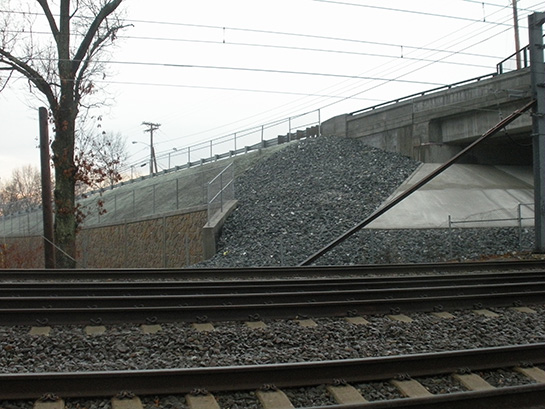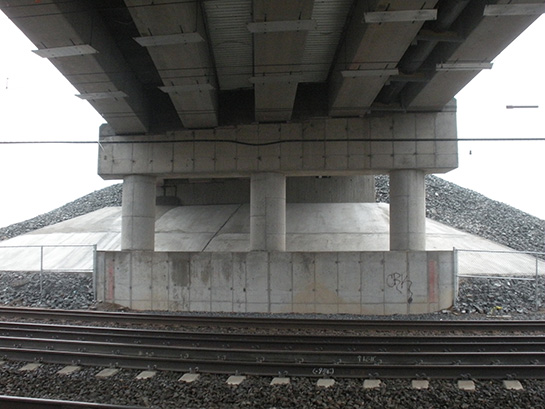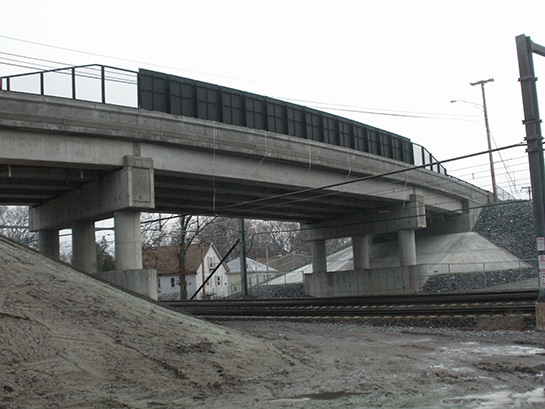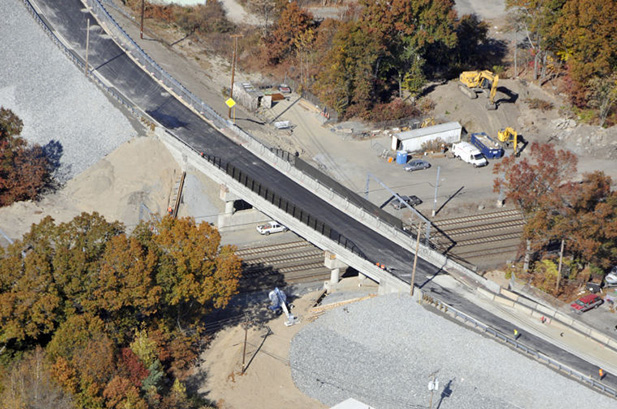Bridge Replacement: Olive Street over the Amtrak and MBTA Railroads
Project Overview
Project Overview
In coordination with MassDOT, AMTRAK and MBTA Railroads, SPS successfully demolished and reconstructed this 165-ft bridge over the busy AMTRAK Acela corridor in downtown Attleboro, MA. During demolition and construction, SPS designed and installed a temporary pedestrian bridge; Installed drilled shafts at new bridge abutments and piers; and Installed cast-in-place concrete abutments and piers; Installed pre-stressed precast concrete box beams.
The project included full-depth roadway construction along Olive Street, including Intersection improvements, new drainage, sewer & water utilities, mechanically stabilized earth slopes (MSE Slopes), and a 450-linear foot cast-in-place concrete retaining wall with an architectural finish.
Services Performed
- Designed and installed a temporary pedestrian bridge
- Installed drilled shafts at new bridge abutments and piers
- Installed cast-in-place concrete abutments and piers
- Installed pre-stressed precast concrete box beams
- Full-depth roadway construction along Olive Street, including Intersection improvements, new drainage, sewer & water utilities, mechanically stabilized earth slopes (MSE Slopes), and a 450-linear foot cast-in-place concrete retaining wall with an architectural finish.
Key Challenges
Coordination for demolition of the extremely deteriorated pre-existing Olive Street Bridge and reconstruction of the proposed structure over AMTRAK’s high voltage overhead catenary system (OCS) required the relocation of dozens of overhead and underground utilities. This required precise coordination and scheduling between Town and State officials, AMTRAK and MBTA Flaggers and A-Men, dozens of individual utility companies and private third-party relocation subcontractors.
Successful Results
All work was completed on time, with zero OSHA recordable injuries and no lost-time injuries during the project’s approximate 35,700 Man Hours.
Interesting Facts / Figures
All work was completed on time, with zero OSHA recordable injuries and no lost-time injuries during the project’s approximate 35,700 Man Hours.

